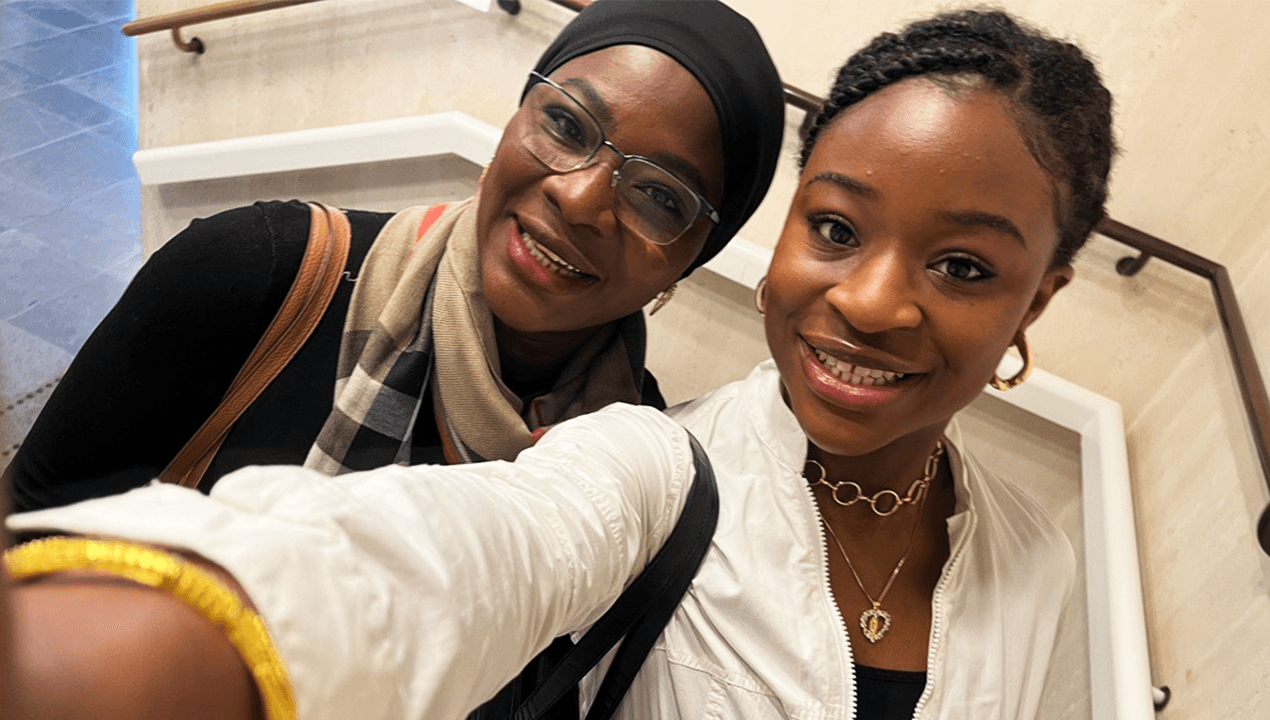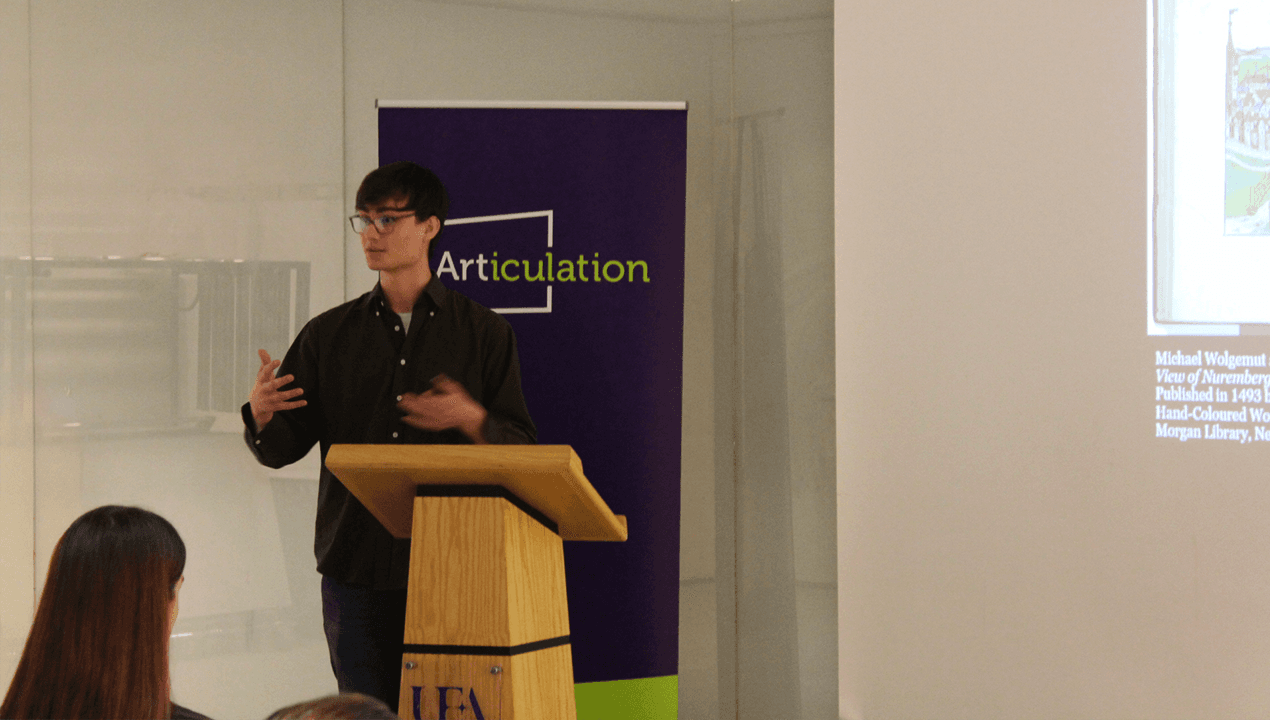
Amira Akanbi
About
Amira is a Y13 student who studies Art, Latin, History - Rights, Race and Revolutions. On 20 March 2024, she took part in the grand final of the Articulation Prize, which took place in the British Library.
Well done Amira for all your hard work and success!
Congratulations to Amira for all her hard work and success at the Articulation Prize event that took place in the British Library. Amira’s talk on the work of textile artist Bisa Butler impressed the judges and led her to the finale of the competition.
The Articulation talks are based on a work of art, a piece of architecture or an artefact. Film, performance art, installation art, sculpture, illustration, ceramics, jewellery, photography or relic.
Students select one work, or a cohesive series of works, by the same artist, architect or maker to a panel of expert judges.
How did you find out about this competition and how have your teachers supported you during this process?
I learned about this competition through a Teams post and later, our teachers briefed us on the requirements. Tim provided us with the opportunity to present in front of two separate audiences. Following each performance, he offered valuable feedback which allowed us to refine our speeches further.
Your talk delved into racism and identity through the work of textile artist Bisa Butler, could you provide some details regarding the key talking points you covered?
The artwork I discussed is a poignant quilted piece titled "I Am Not Your Negro" by Bisa Butler. Inspired by an unnamed African American man during the Gilded Age, the piece delves into the struggle to reclaim his identity. In an era where black individuals were often reduced to the derogatory label of "negroes" and burdened by stifling stereotypes, Butler's work serves as a poignant disruption of these harmful narratives.
Central to the piece is the man's unflinching gaze, an act often deemed as "reckless eyeballing," which could tragically lead to his demise in a society that considered him inferior. Moreover, the title "I Am Not Your Negro" echoes the sentiments of James Baldwin's documentary of the same name, offering a critique of a racial system that trivializes black deaths as mere occurrences rather than addressing them as systemic injustices. Through her art, Butler confronts and dismantles these entrenched biases, inviting viewers to reflect on the enduring struggle for equality and recognition.
You presented your talk in free verse. Could you explain what influenced you to make this artistic decision?
Opting for free verse to deliver my talk was a departure from the conventional. Initially, I struggled to encapsulate the depth of my emotions about the piece within the confines of traditional speech writing. It was then that my mother suggested I explore verse, despite my lack of experience in the form.
What were some of the highlights of this day?
I had the pleasure of visiting the Sainsbury’s Centre during the regionals. I've always cherished the opportunity to immerse myself in art, meeting fellow enthusiasts and exploring new pieces. The grand final was equally captivating as I had the chance to tour the British Library, an experience that offered fascinating insights.
What was it like to compete in the Grand Final of this competition?
The final took place at the British Library, where we had the opportunity to take a comprehensive tour of its facilities and meet all the other applicants. During the tour, we learned about the restoration process for both sound and various books and objects.
Following the tour, we had lunch. Afterwards, we were all equipped with microphones and practiced a segment of our performances. Then, the speeches commenced. Despite feeling nervous, I believe I delivered my speech well and felt immensely proud of my presentation. Following a brief interval for deliberation, the winners were finally announced.

